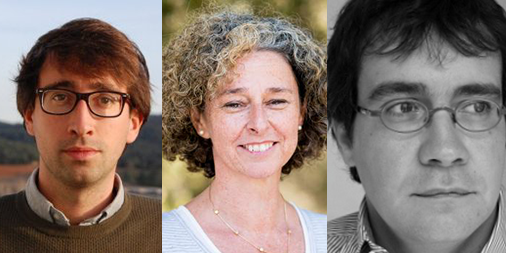Note: The following announcement was sent to the CSES email list. To receive notices like this one by email, please join our mailing list.
July 21, 2021
Dear Comparative Study of Electoral Systems (CSES) user community,
It is our great pleasure to announce that Enrique Hernández, Eva Anduiza, and Guillem Rico of the Universitat Autònoma de Barcelona are the winners of the 2021 GESIS Klingemann Prize for the Best CSES Scholarship, for their article “Affective polarization and the salience of elections” in Electoral Studies.
The current year’s Selection Committee was comprised of: Jill Sheppard of The Australian National University (Selection Committee Chair), Christina Eder of the GESIS – Leibniz Institute for the Social Sciences in Germany, and Eelco Harteveld of the University of Amsterdam in the Netherlands. The Selection Committee described their selection of the winning work as follows:
The committee is pleased to award the 2021 GESIS Klingemann Prize for the Best CSES Scholarship to ‘Affective polarization and the salience of elections’, by Enrique Hernández, Eva Anduiza, and Guillem Rico, and published in Electoral Studies. This paper uses paradata collected in the CSES – date of interview – to examine whether self-reported affective polarization decays following an election. Affective polarization – and particularly voters’ dislike of certain parties or candidates – has attracted increasing attention in recent years, as political scientists seek to understand and explain how emotions affect our political behavior. This paper finds that the number of days between CSES interviews taking place (a convincingly random and exogenous measure of time) positively predicts a reduction in both party identification and ideological polarization. Combined, these reflect a reduction in affective polarization as days pass after an election. In other words, we might expect that elections represent the very height of affective polarization and that polarizing emotions cool down substantially between elections. The paper, therefore, makes a vital contribution to contemporary debates about rising anger and hatred in democratic politics, as well as offering innovative ways of interpreting election studies and a novel use of existing CSES data.
The CSES would like to thank the Selection Committee for their work and the many persons who nominated works for consideration. We furthermore thank the GESIS – Leibniz Institute for the Social Sciences for their sponsorship and support of the prize since its establishment in 2011.
Hernández, E., Anduiza, E., and Rico, G. (2021). Affective polarization and the salience of elections. Electoral Studies. 69(1), 1-9. https://doi.org/10.1016/j.electstud.2020.102203.

